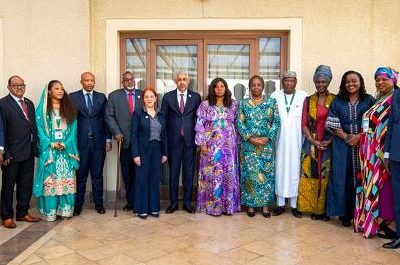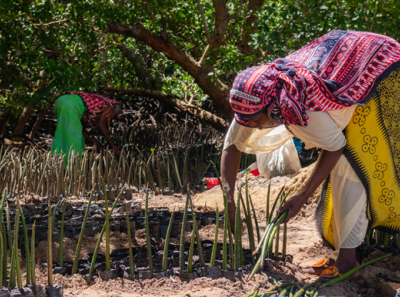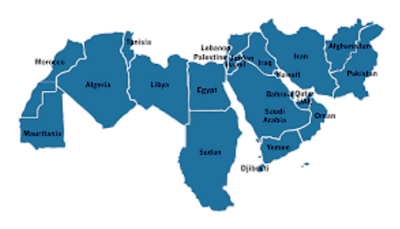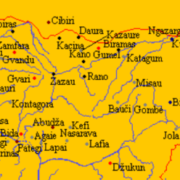If awards could improve national security, wipe off mass poverty and reduce massive unemployment, writers would probably become happy recipients of the Nigerian National Award particularly if they were writers with Chinua Achebe’s reputation.
But for the second time, Achebe, the internationally acclaimed author of novels including Things Fall Apart, Arrow of God, and A Man of the People has declined to accept the Nigerian national honour to become a Commander of the Federal Republic. Achebe said accepting the honour would dilute his substantial accusation of ineptitude and corruption against the country’s political elites. He had first turned down the offer in 2004 when Chief Olusegun Obasanjo was in power.
A pained Achebe would tell the Nigerian press he was turning down the award because “the reasons for rejecting the offer when it was first made in 2004 have not been addressed let alone solved. It is inappropriate to offer it again to me.”
Professor Albert Chinualumogo Achebe, poet, novelist, and one of the most important living African writers, was 31 years when his country, Nigeria, got political independence from the British. Much of the 51 years of post independence Nigeria that has seen the writer grown to become an octogenarian have been seasons of frustrations, disappointments and somewhat eerie feelings of failure that define the Nigerian enterprise. At 82, Achebe can only weep for his beloved country as an exile in the United States.
Achebe reflected upon all these in 1983 when he was 53 years old and went on to publish his thoughts in a slim 68-page testament he titled The Trouble With Nigeria. In his reflections, Achebe blamed the failure of the Nigerian state directly on the political leadership that he accused of administrative ineptitude and intellectual shallowness. “The trouble with Nigeria is simply and squarely a failure of leadership. There is nothing basically wrong with the Nigerian character. There is nothing wrong with the Nigerian land or climate or water or air or anything else. The Nigerian problem is the unwillingness or inability of its leaders to rise to the responsibility; to the challenge of personal example with are the hallmarks of true leadership.”
Achebe’s 1983 worrying conclusion on the State of the Nigerian Federation has defined his engagement with those in power before and after he left for exile in the United States in the 80s. Opting to quietly adopt a combative intellectual response to the troubles in his country and to repeatedly prove the point that writers are under moral obligation to speak truth to power, Achebe would tell Obasanjo in his rejection letter of 2004: “Nigeria under your watch is too dangerous for silence. I must register my disappointment and protest by declining to accept the high honour awarded me in the 2004 Honours list.”
In The Trouble With Nigeria, the man who authored the world famous Things Fall Apart in 1958 – his first of several classics – translated into at least 45 languages, and has sold eight million copies worldwide; would lament “Nigeria has been less than fortunate in its leadership. A basic element of this misfortune is the seminal absence of intellectual rigour in the political thought of our founding fathers – a tendency to pious materialistic woolliness and self-centred pedestrianism.”
Achebe weeps over a decomposed leadership that has effectively ensured the systematic erasure of over 150 million Nigerians who are unlikely to know what good healthcare means or what pothole-free roads look like and what a good meal tastes like before they finally die at 45 years; the age the World Health Organisation has pegged as the average lifespan of a Nigerian adult. The author himself is wheelchair bound today; the consequence of a road accident he had in Nigeria some small years back resulting from badly kept highways where tens of thousands perish every year.
Like many other writers of his generation and the one after his; Achebe has sought to blame the failure of his continent on perverse political leadership bereft of vision. He first examined this theme in A Man of The People in the 60s just before the Nigerian civil war; and would later re-echo the same sense of national distortion in Anthills of the Savannah in I987. Ayi Kwei Armah had examined the same tragedy in The Beautyful Ones Are Not Yet Born published in 1968. The novel depicted the rot in Ghana under Kwame Nkrumah but it typically “expresses the frustration of many citizens of the newly-independent states in Africa felt after attaining political independence. Many African states like Ghana followed similar paths in which corruption and the greed of African elites became rampant.”
Ngugi wa Thiong’o also in exile like Achebe, and Armah, took a swipe at post colonial Kenya under the new generation of political elites. In the Devil on the Cross, literary critic Jumana Farouky notes that Ngugi “exposes the plight of the masses and the workers in the present-day political set-up in Africa in consonance with the belief of his that African writers should address themselves “to the crisis or conflict between the emergent African bourgeoisie and the African masses.” Ngugi has pursued similar themes in his other works including Wizard of the Crow, A Grain of Wheat, Petals of Blood, and the very troublesome I Will Marry When I Want, a 1977 play that critiqued neocolonial Kenya.
Perhaps, no one has best exemplified the truism that writers must become the conscience of the society than Nobel Laureate and fellow Nigerian writer Wole Soyinka who appropriately remarked in his 1972 prison notes, entitled The Man Died that: “The man dies in all who keep silent in the face of tyranny.” Soyinka has remained one of the most outspoken voices against military dictatorship and civilian despotism. Many of his works including Kongi Harvest, and Opera Wonyosi satirize the abuse of power by the few against the majority.
Part of the sad commentary on the continent is that a sizeable number of its truly great writers are either fully or partially in exile. That in itself reflects the tragic circumstances in which post colonial Africa has found itself: a colony of self-serving ‘homeboy’ colonialists too quick to employ the vicious tools of tribalism and nepotism to sustain their grip on power. Achebe laid this bare in his The Trouble With Nigeria: “But whereas tribalism might win enough votes to install a reactionary jingoist in a tribal ghetto, the cult of mediocrity will bring the wheels of modernization grinding to a halt throughout the land.”
For Achebe therefore, rejection of the Nigerian National Award only reinforces the argument of his ilk that writers must use opportunities such as this to loudly and clearly reject the political elites that have made Africa one ‘long sad nightmare.’ For the silent millions battered and left to brood over their hopeless homesteads, it is this rejection of their oppressors that still tinder the fire of hope that Africa will one day wake up from its nightmare. The more reason, Achebe’s rejection resonated so loudly and widely from Lagos to Malabo, Gaborone to Kampala and the other abodes where the right to happiness and opportunities have been frozen by failed leadership.
For Achebe, rejection of the Award only reinforces the argument of his ilk that writers must use opportunities such as this to loudly and clearly reject the political elites that have made Africa one ‘long sad nightmare.’
Achebe’s rejection resonated so loudly and widely from Lagos to Malabo, Gaborone to Kampala and the other abodes where the right to happiness and opportunities have been frozen by failed leadership.

















